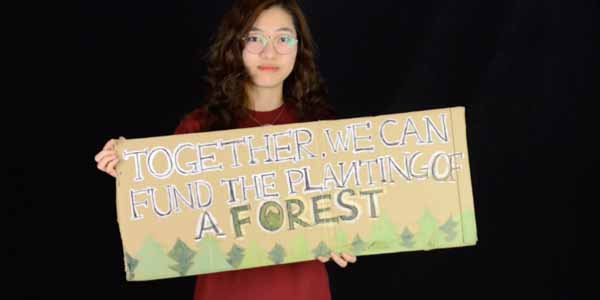‘JUST ONE TREE DAY’ – still time to sign up!

There is still time for schools to join hundreds of others and sign-up to the fourth international ‘JUST ONE Tree Day’ taking place on Friday 30 September (Scotland) and Friday 14 October (rest of the home nations).
Schools throughout the UK and around the globe have already committed to participating in this international non-uniform day that encourages children to bring in £1 to plant a tree and help reforest the planet – a tree is planted for every £1 raised. Over 200,000 children from 11 countries have joined together since JUST ONE Tree Day first launched in 2019.
Schools can sign up here.
 JUST ONE Tree, a British not-for-profit dedicated to removing CO2 from the atmosphere through global reforestation.
JUST ONE Tree, a British not-for-profit dedicated to removing CO2 from the atmosphere through global reforestation.
The event is open to both primary and secondary schools – those taking part can access lesson resources that fit in with the national curriculum. As part of their fundraising activities, children learn about photosynthesis, the benefits of trees for both people and wildlife and the vital role they play in reducing the impacts of climate change.
JUST ONE Tree founder, Amanda Bronkhorst, said: “JUST ONE Tree Day was born out of my passion to make a difference – not only for my young daughter, but for the future of all children. JUST ONE Tree Day has resulted in over 200,000 trees being planted and I know that this year the ‘children’s forest’ can grow even bigger.
“School participation is doubly important because not only do they raise funds, the forest planted on their behalf helps compensate for a school’s environmental impact.
“Many children today struggle with climate anxiety, caused by the reality of our climate crisis. But JUST ONE Tree Day tells them that we can all make a difference with a simple action. By taking direct action it spreads hope and positivity. It’s important to involve our young, helping them tackle their worries of today while setting them up for a sustainable lifestyle that aids their future.”
The money raised is used to plant the ‘right trees in the right place’ – supporting reforestation projects in Brazil, Haiti, Indonesia, Kenya, Madagascar, Mozambique, Nepal and Zambia, including mangrove forests and also kelp regeneration in the seas off the Philippines and Australia.





